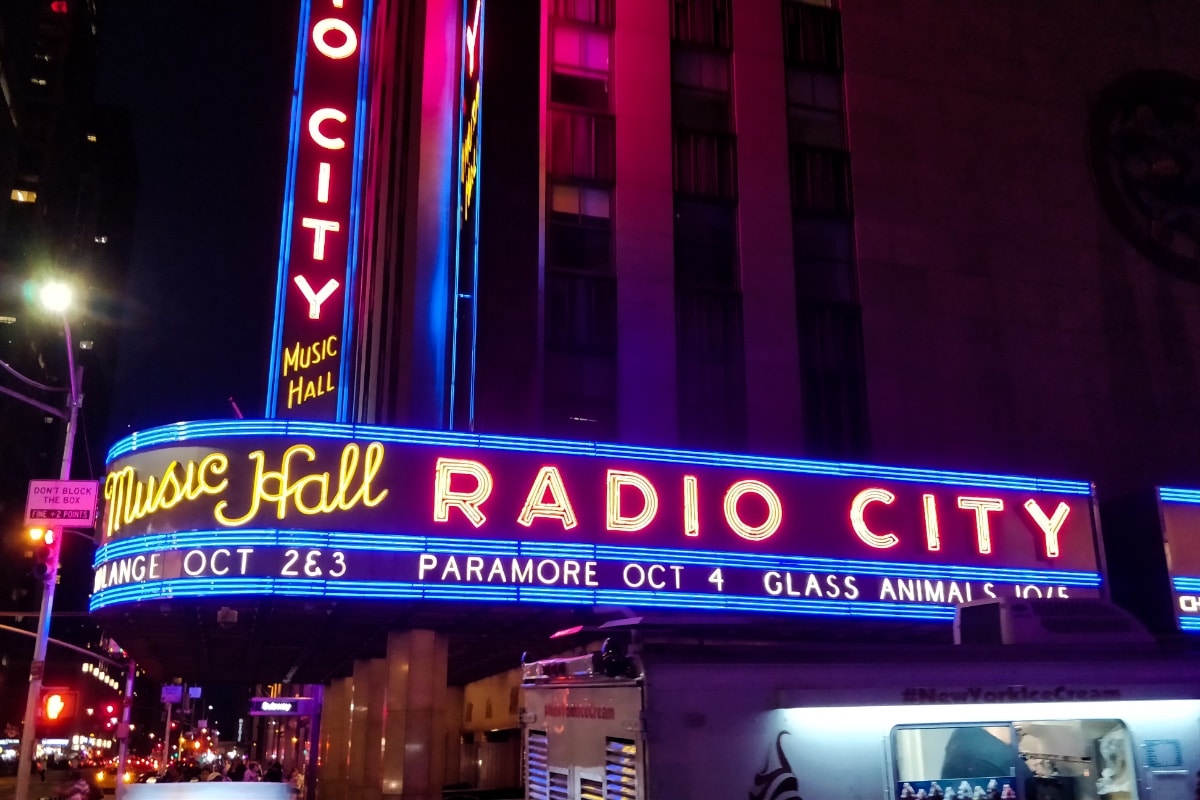Whether you’re an independent artist grinding it out on your own or a rapper signed to a major label, it’s absolutely important that you understand what a 360 record deal entails.
It’s one of those terms that gets talked about often, usually by people who don’t understand it fully, resulting in a lot of miscommunication and misinformation being passed around.
Even if a 360 record deal isn’t directly relevant to you right now, it’s vital that you understand the positives and negatives, why there is always so much controversy and why the music industry is headed towards the 360 direction.
So let’s get right into it.
What is a 360 record deal?
To put it in the simplest term, a 360 deal is when a relationship between a record label and an artist where the label provides financial and marketing support for all facets of the artist’s work; including music sales, live performances, publishing, endorsements and more. In return, the artist agrees to give the label a cut of all their revenue streams.
Basically, the history of the 360 deal started when Jeff Hanson, the head of the Silent Majority Group, coined the term when he signed the rock band Paramore to Atlantic Records. “I was actually the person who fought the band to make the first 360° deal happen, which I think is the biggest reason the band is where they are today,” Hanson said in a past interview.
J. Cole’s 360 deal with Roc Nation
To make it even more relatable for rappers out there who are still trying to make sense of it all, J. Cole is signed to a 360 deal with Jay-Z Roc Nation, let’s let him explain what it is.
“Basically, 360 deals mean the label gets a piece of everything. Back in the days, it was sacred that a label could not touch your show money,” Cole said in an interview. “Worst things worst, if a label wasn’t putting you out, you could always eat off your show money, your merchandising, anything that your name is on, they couldn’t touch. But now that albums aren’t selling, labels need a way to make money, cause they’re losing money.”
So traditional deals would be typically be an agreement with an artist and a label where the label would fund the music creation, promotion, distribution and take a cut of all music sales. But in an age of increasingly free music, streaming and rampant illegal downloading, record labels aren’t making money back from music sales alone.
A 360 deal is a response to this: record labels will get involved in other aspects of the artist and also take a cut of these revenue streams as well. On the surface, this sounds like a bad deal for the artist, but not necessarily – we’ll let Cole explain it further:
“On the other hand you want that because if I’m an artist on Def Jam, and my album didn’t sell that well, back in the day a label was so quick to shelf you. So quick to be like, Fuck you, nigga, we can’t make any money off you no more, your album cost too much, blah blah. But now if he had a 360 deal, the label will say, Aight let’s at least throw him on tour, let’s at least make money off them like that. And now you’re eating and the labels eating. And everyone’s happy.”
The 360 record deal mastermind – Lyor Cohen
One of the figureheads of the 360 record deal is none other than veteran music executive Lyor Cohen. While he usually gets a bad rap for being a strong advocate of the 360 deal, when it comes to this rap game, there are few people with a deeper pedigree than Lyor Cohen.
Starting out in a early ’80s as a promoter for legendary rap acts like Run-DMC and Whodini, Cohen quickly joined forces with Russell Simmons at Rush Productions where he managed artists like LL Cool J, Public Enemy, Slick Rick, Eric B. & Rakim and plenty more.
Over the next couple decades, Lyor will continue to rise steadily to the top of the music food chain, taking over Def Jam and ushering in a new generation of multiplatinum artists like DMX, Jay-Z, Ja Rule and more.
After leaving Def Jam and becoming the CEO of Warner Music Group, Lyor decided to start up his own independent record label – 300 Entertainment, with longtime colleagues Roger Gold, Kevin Liles and Todd Moscowitz.
Over the past few years 300 Entertainment has grown to become one of the preeminent independent labels offering 360 record deals to big name artists such as Fetty Wap, Young Thug, Migos and more.
In defence of 360 deals, Lyor explains: “We are reactivating the lost art of artist development, I really believe that.” According to Lyor, having a 360 deal with artists allows a label to sign fewer acts to the roster, which means more time and energy can be invested into each person so it’s only fair that the label also takes a percentage from additional revenue streams.
Another legendary music executive, Steve Rifkind,who founded Loud Records which was home to hip-hop acts like Wu-Tang, Mobb Deep and Big Pun, agrees that 360 deal can be beneficial for both artists and labels if done properly:
“I don’t believe in 360 deals that much unless we really do something for you,” Rifkind explained. “And I think that’s just the record business of getting their piece when they break an artist. I have no problem with taking a piece when I do something for an artist. If I get them a brand deal, a tour, [a] publishing deal, then I feel I deserve a piece. I don’t feel as if I deserve anything if I don’t bring anything to the table.”
Benefits of 360 record deal for hip-hop artists
For hip-hop artists out there grinding their heart and pouring blood, sweat and tears into their music, a 360 deal naturally sounds like a bad thing. I don’t blame them – they’re putting their life into their music and all they see is a record label taking a percentage of everything – touring, merchandise, music sales, etc.
But let’s take a deeper look at it.
360 record deals enable a label to invest a lot more time and energy into artists than traditional deals would typically allow. Let’s say you’re a record label owner and you have a traditional deal with 20 artists on your roster. Now let’s say only 5 of these acts are selling music and making money for the label, would you bother putting any time and energy int the other 15?
Remember – as a record label owner, you might have hundreds of employees depending on your decisions. If the label goes broke because of the wrong decision, they all lose their jobs and that’s on you.
Now let’s say its a 360 deal situation and you have 5 artists on your roster instead of 20. Maybe only one of these artists are making hits and selling music – for example Fetty Wap on 300 Entertainment – you can still focus on developing and promoting the other 4 artists.
Why? Because there are less artists on the roster and there are other ways that they can be making money instead of just music sales – for example Young Thug can go on tour with Travis Scott and sell merchandise.
360 record deals mean there are fewer artists and more potential revenue streams so a label will always have opportunities to develop their roster, instead of letting some of them languish on the shelf because their music isn’t selling.
J. Cole is signed to a 360 deal to Jay-Z’s Roc Nation. Even though Cole had to work hard to get where he is today – 2014 Forest Hills Drive went platinum with no features – it’s because he’s signed to a 360 deal with Roc Nation that he’s able to get opportunities like selling out Madison Square Garden, filming a HBO documentary series.
Since Roc Nation is invested in J. Cole as a complete artist, and not just a rapper who sells music for them, they’re putting in the time and energy to help him succeed in all areas – merchandising, TV spots, interviews, touring, etc.
At the end of the day, as with anything in the rap game, it’s all up to the artist and what direction they want to take their career. It’s not about 360 deals being good or bad, it’s about whether they’re right or not for your particular situation.
Just like the staying independent or signing to a major label debate, it depends entirely on you and where you want to go with your music or brand. You might want to stay grinding independently like Chance The Rapper or you might want to take that 360 deal like Cole. The common factor in both situations? Hard work and dedication.









